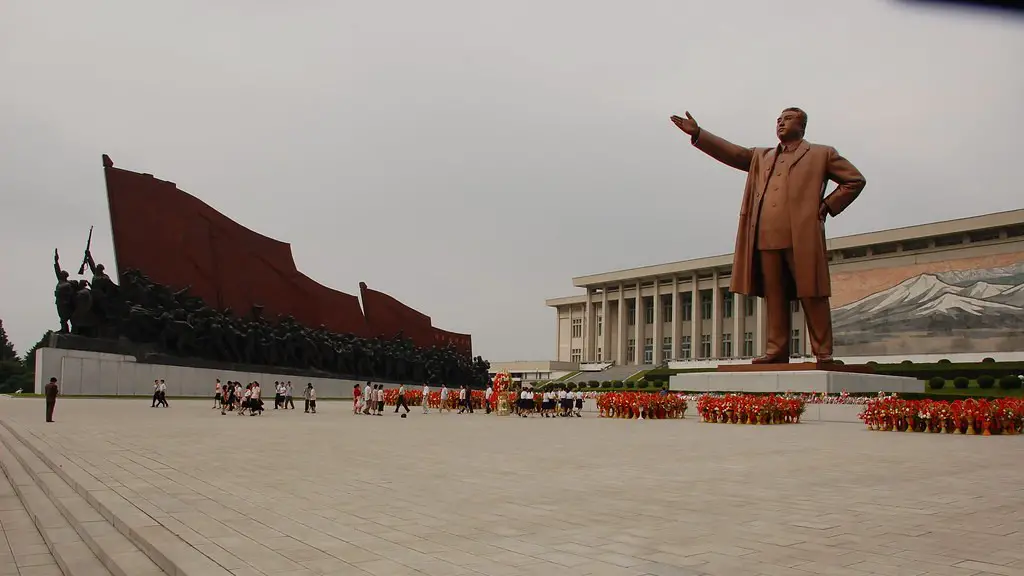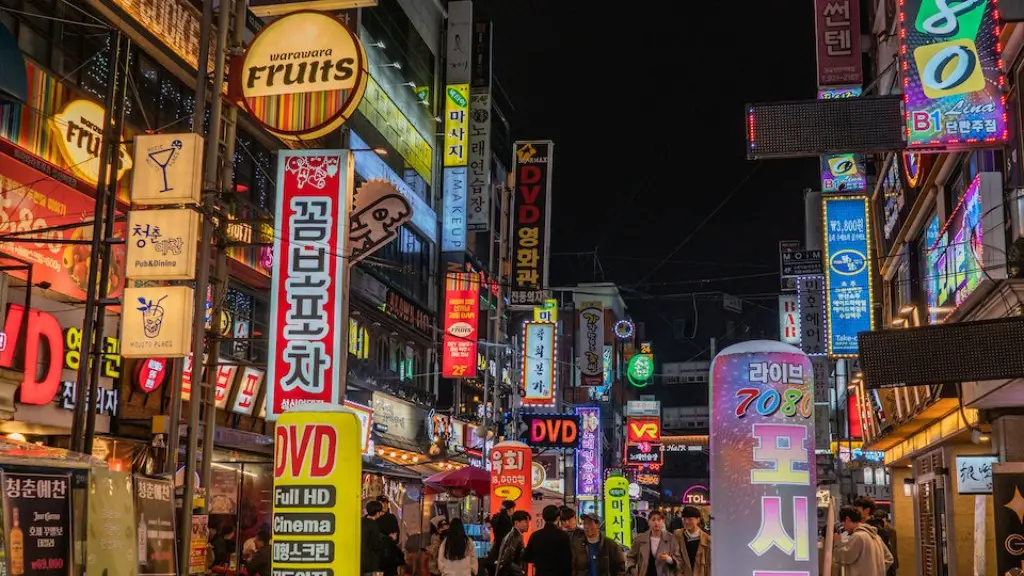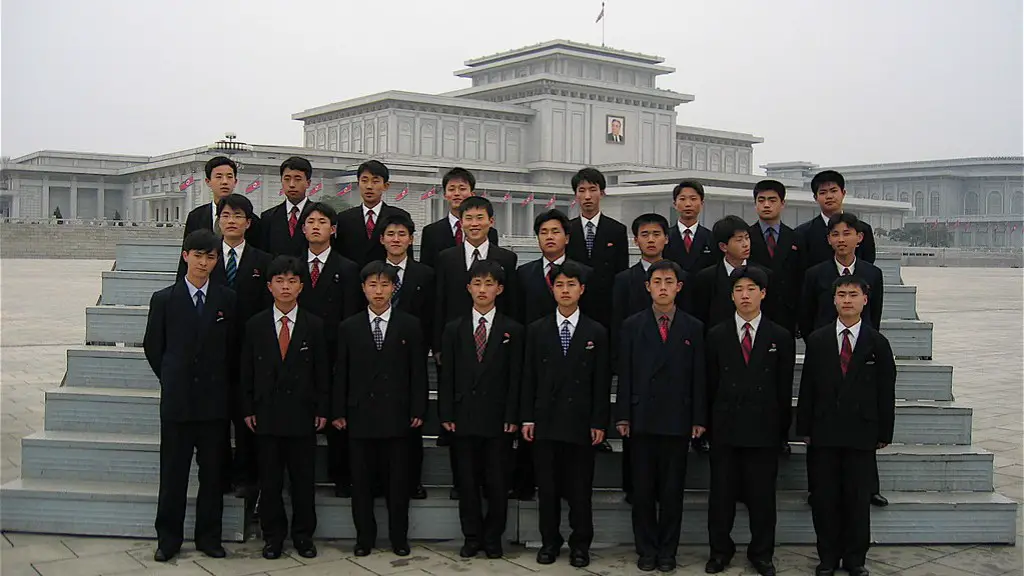North Korea has been a country of much mystery for decades. As of today, it remains one of the most isolated nations on the planet and its government is famously known for its long-held secrecy around its nuclear weapons program. Various reports have indicated that North Korea continues to develop and even expand its nuclear weapons capabilities despite international criticism and sanctions. Governments around the world -especially the United States- continue to take steps to limit their interactions with North Korea and its government.
Since 2012, North Korea has been rapidly accelerating its nuclear programs and has pursued a variety of efforts to bolster its capabilities May 2021 reports offer evidence that North Korea has increased its stockpile of plutonium to approximately 40 kilograms, enough to make four to seven nuclear weapons, and reports since 2018 also suggest the country is expanding its uranium facility, with potentially 5kg of enriched uranium for production of up to seven more nuclear devices.
Currently, North Korea is thought to possess various ballistic missiles with various technologies such as solid-fuel engines, re-entry vehicles and improved accuracy that are believed to be able to reach the U.S. continent. In addition to these weapons, it is thought that North Korea is conducting research and training relating to a range of military tactics and techniques including cyber-warfare and a fleet of Submarines.
Experts maintain varying opinions regarding the North Korean government’s motivations for their nuclear weapons program as no clear political goal has been articulated by the government. Some experts have stated that the nuclear program is meant to deter international interests from undertaking hostile action against North Korea, while others suggest that it is aimed at maximizing military power in the region. Whatever the intent, the persistent development of the nuclear threat is drawing criticism from various countries.
The United Nations has been the most vocal critic of the program and has issued various resolutions at the Security Council condemning North Korea for their actions (‘deplorable’, according to a former United Nations Secretary General). All of these resolutions were unanimously adopted and ordered North Korea to abandon its nuclear programs and dismantle their existing capabilities.
The United States has also implemented a host of sanctions against North Korea, with the most recent being the Comprehensive National Defense Authorization Act signed into law by President Biden in April 2021. This sanctions law seeks to impede North Korea’s access to money and resources to maintain their nuclear programs. U.S. officials have stated that their goal is to pressure North Korea into a diplomatic resolution or face stiff penalties. As of today, the North Korean government has refused to negotiate and the future of the country’s nuclear program remains uncertain.
What implications does North Korea’s Nuclear Program have for the region?
The threats posed by North Korea’s nuclear weapons program and its actions have raised significant concerns across the region. The heightened nuclear threat has caused several countries in the region to increase their own defense capabilities, with South Korea and Japan all purchasing more advanced equipment such as early warning systems and air and sea defenses.
Beyond escalating tensions within the region, there is the risk of an accidental conflict, as countries become increasingly active in the contested Sea of Japan. North Korea’s illegal activities and military builds are creating a powder-keg atmosphere within the region that is a breeding ground for potential miscalculations.
The high stakes of North Korea’s nuclear program are particularly dire for South Korea, which is geographically linked to the North and is considered the most vulnerable nation should the situation escalate. South Korea’s government has responded with their own efforts and has implemented an expansive ‘sunshine policy’ that promoted cross-border relations, expanded economic cooperation and pushed for the denuclearization of the Korean Peninsula.
There have also been recent indications of progress in the relationship between the two countries, despite the sanctions from the United Nations and United States. In 2018, both nations held a historic summit and have since taken steps toward economic cooperation and close cooperation on issues such as migration, healthcare and transport.
Despite these efforts and small-scale progress, the Nuclear Non-Proliferation Treaty and the U.S. sanctions have yet to succeed in stemming the development of North Korea’s nuclear capabilities.
How have other Nations Responded?
In addition to the United Nations and United States, other nations have responded to North Korea’s nuclear program in different ways. Many countries such as China, Russia, and Japan have taken a more diplomatic stance, pushing for negotiations and dialogue instead of strictly enforcing sanctions.
The European Union has also taken a softer approach, working with North Korean officials to achieve a peaceful resolution by engaging in what has been called ‘cautious commerce’ that seeks to provide the North Korean government with a legitimate path to earn capital while still pressuring them to denuclearize. European Union sanctions remain in effect, but the Paris-based International North Korean Association for Human Rights (INKA) has called for their removal, warning that the EU is on the wrong path with their policy.
Other countries, such as South Korea and Japan, have adopted a tough stance in support of the United States. Japan has maintained its strict sanctions policy, while South Korea has occasionally undermined the goal of international sanctions by providing Kim Jong Un with a number of economic incentives that are meant to gradually improve the country’s standard of living and progress towards conclusive denuclearization.
In general, the international community remains divided when it comes to tackling the North Korean nuclear crisis and many countries continue to exercise caution given the heightened tensions in geography.
What is North Korea’s aims in Pursuing Its Nuclear Programs?
North Korea’s ultimate aims in pursuing its nuclear program remain unclear, with some theorizing that Kim Jong Un is seeking global respect and legitimacy from the nuclear programs and some stating that the programs are meant to spread fear and paranoia among neighboring countries. Others believe the primary purpose is for domestic reasons, such as enhancing the image of the Kim regime and pursuing economic opportunities.
Whichever reason holds the most weight, it is clear that North Korea’s nuclear capabilities come with a great deal of power and will likely continue to shape the region for years to come. This is why the international community has been increasingly adamant in calling for North Korea to denuclearize, a message that the North Korean government has mostly rebuffed.
In terms of prospects for a successful resolution, most experts agree that negotiation is key. North Korea has shown to be open to acceptance of international humanitarian aid and joint economic projects, as seen with the 2018 Inter Korean Summit. The North Korean government has largely refused to negotiate in the past, but progress can be made by using these foreign economic and business ties to pressure the government into more serious even-handedness.
Does North Korea Have Any Global Significance?
North Korea’s nuclear program has been a source of great concern for the international community for years. However, the world has become increasingly aware that this situation in Korea is not merely a regional affair, but one that has global implications. This is due to the fact that North Korea’s nuclear weapons are capable of reaching multiple countries, including the United States.
Given this, North Korea’s nuclear capabilities are a potential risk to the security of other nations like the United States, Japan, China and Russia, as well as that of numerous other nations, particularly in East Asia. This has resulted in an increased call for North Korean denuclearization on a global scale, with countries all around the world pushing for the North Korean government to back down and abandon its nuclear program.
Furthermore, North Korea’s nuclear programs have had a profound impact on the global economy. Its development of nuclear capabilities has led to an increase in spending by countries to build up their own defense capabilities, as well as the cost of numerous economic sanctions that have been imposed on the country. In addition, North Korea’s bellicose posture towards other countries, as well as its domestic human rights violations, have further caused economic losses, making it a liability to the world’s financial system.
What Are the Implications for the Future?
Given the various efforts to resolve the North Korean nuclear crisis, it is difficult to predict the future. However, the consensus amongst experts is that dialogue is key. As the situation stands today, the North Korean government is unlikely to agree to unilateral denuclearization, making negotiations the only viable pathway to a peaceful resolution.
Whether or not this will occur, however, remains to be seen. Given the history of broken promises and lack of trust between the two sides, it is unclear whether or not they will be able to come to an agreement. In addition, any potential resolution will likely require the assistance of other countries, particularly China and Russia, as both of these countries have close ties with North Korea and considerable influence.
No matter what happens, North Korea’s nuclear capabilities are likely to have a significant impact on the region and the world for years to come. It is thus essential that the international community remain focused on reducing tensions in the region and finding ways to peacefully resolve this crisis.





